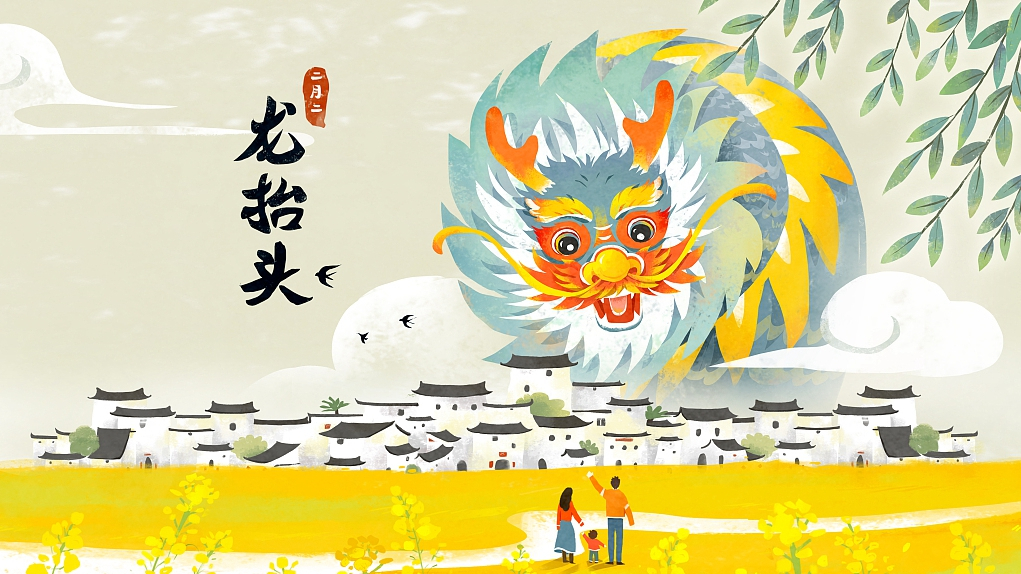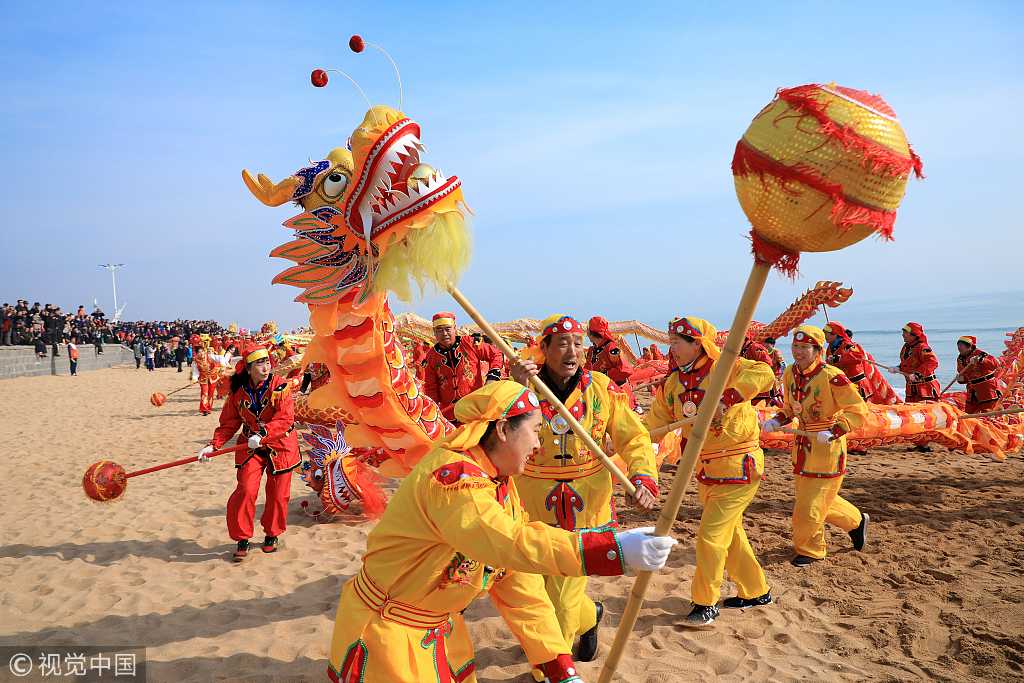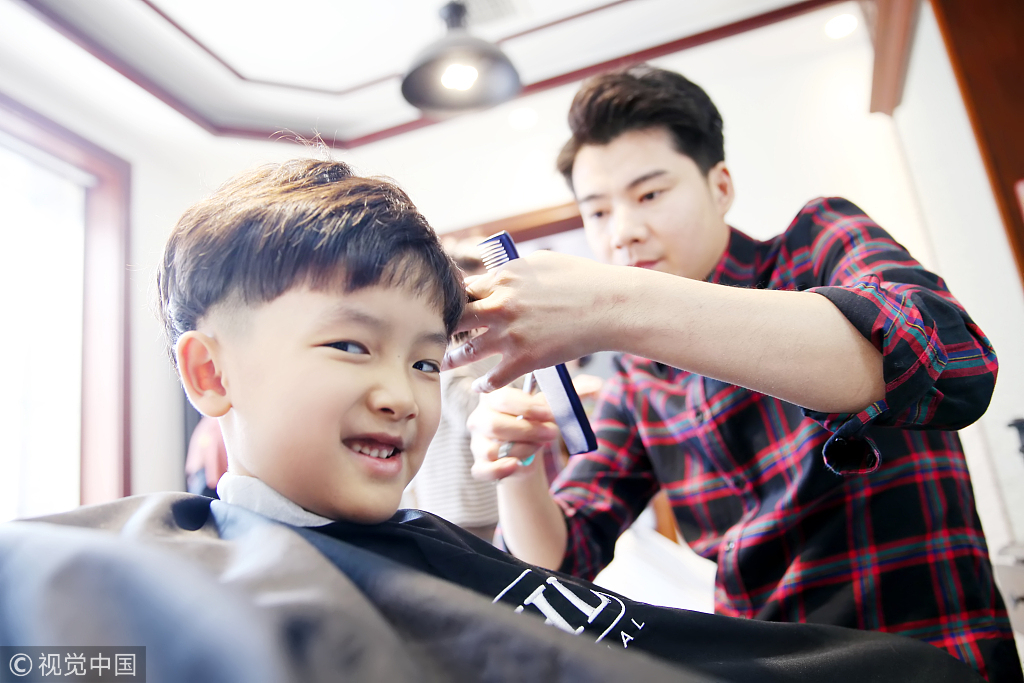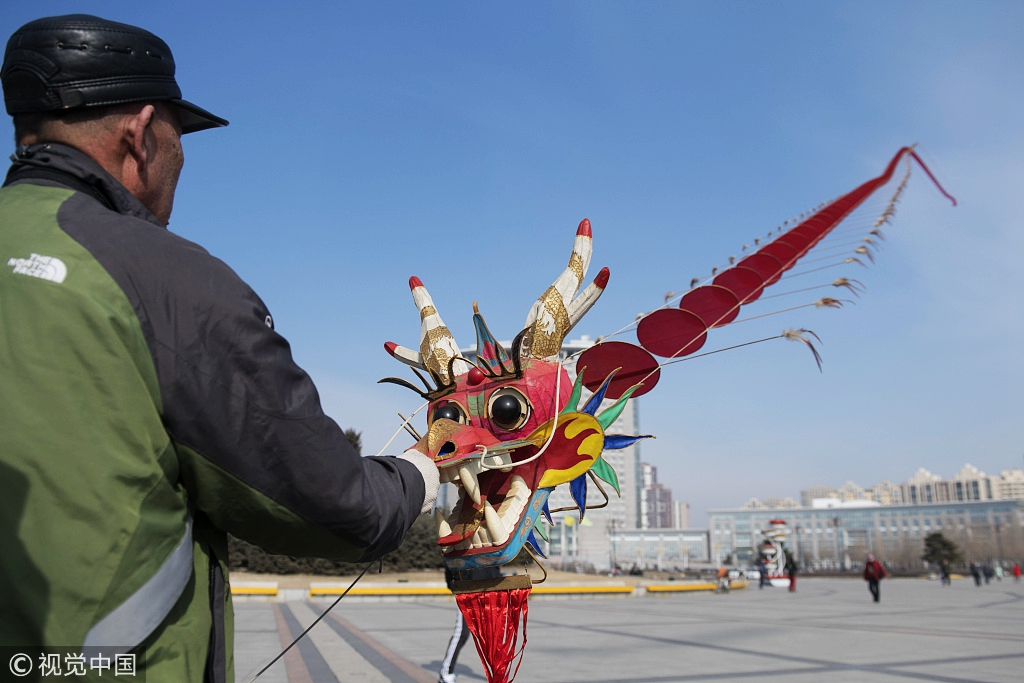
Culture China
23:02, 08-Mar-2019
Celebrate Chinese Dragon Head-raising Day with a fresh new haircut!
By Jiang Qingrui

The traditional Dragon Head-raisng Day - Longtaitou Festival in Chinese - comes on the second day of the second month of the lunar calendar each year. This year, it falls on March 8, which is also the International Women’s Day.
What does the day symbolize? And how do Chinese people do to celebrate it?
Pray for a golden harvest
In ancient agrarian societies, farming was highly reliant on the weather. Proper rainfall and plenty of sunlight were necessary for a good harvest at the end of the year.
The Chinese dragon, besides for its connotations for good luck and supreme power, is also the god managing weather and water.

Traditional dragon dance is performed to celebrate the Dragon Head-raising Day in Rizhao, Shandong Province, March 8, 2019. /VCG Photo
Traditional dragon dance is performed to celebrate the Dragon Head-raising Day in Rizhao, Shandong Province, March 8, 2019. /VCG Photo
So Dragon Head-raiding Day is about honoring the Chinese dragon and praying for good weather in spring, the key time for plowing the fields.
There are several explanations behind the name, "Dragon Head-raising." One is to do with astrology: At the beginning of the second lunar month, a star called the "dragon horn" appears just above the horizon line at dusk, but the rest of the "dragon body" can't be seen yet.
Another saying - also the most common one - is that the raising of the dragon's head symbolizes the waking of life from hibernation. From this day on, insects and animals appear more often, ready to begin their life for another year.
Get a new haircut
Since it's a folk taboo in traditional Chinese culture to have haircut in Zheng Yue, the first lunar month, Dragon Head-raising Day is the first time in the new year to have a haircut.

A kid has haircut in a barber's shop to mark the Dragon Head-raising Day in Tangshan, Hebei Province, March 8, 2019. /VCG Photo
A kid has haircut in a barber's shop to mark the Dragon Head-raising Day in Tangshan, Hebei Province, March 8, 2019. /VCG Photo
To get a haircut in spring is a way to embrace the New Year with a new look. Doing it today is also believed to bless children with good health and adults with prosperity throughout the year.
Spread ashes
Chinese people have the custom of spreading ash around their houses, courtyards and also their hearths and water tanks on this day. It's a technique called "Introducing the Dragon" and done as a prayer for health and good luck.

A citizen flies a kite in the shape of dragon to celebrate the Dragon Head-raising Day in Harbin, Heilongjiang Province, March 8, 2019. /VCG Photo
A citizen flies a kite in the shape of dragon to celebrate the Dragon Head-raising Day in Harbin, Heilongjiang Province, March 8, 2019. /VCG Photo
In fact, the ash is also good for killing pests and poisonous insects, which stir in spring and damage people and their crops.
Name food after the dragon
Food eaten on this day also gets a lucky name. Dumplings are called "dragon's ears." Rice is called "dragon's roes." Wontons are "dragon's eyes." Pancakes are"dragon's scales." Eating noodles is said to be "holding the dragon's whiskers."
Some in China also eat stir-fried beans of various kinds on this day, as a start of the work in the New Year.
(Top Photo: A picture shows a Chinese dragon appears on sky in spring. /VCG Photo)

SITEMAP
Copyright © 2018 CGTN. Beijing ICP prepared NO.16065310-3
Copyright © 2018 CGTN. Beijing ICP prepared NO.16065310-3